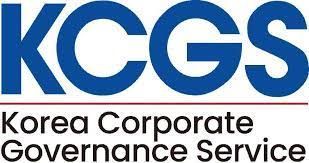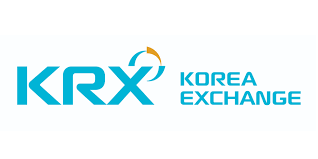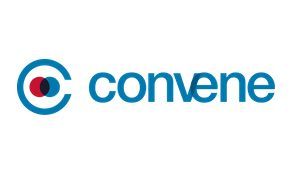
ICGN Seoul Conference
About the event
ICGN Seoul Conference will be hosted by Korea Exchange (KRX) & Korea Corporate Governance Service (KCGS)
Hosted by

Premier Partner

This two-day event aims to help keep attendees informed of the latest corporate governance developments, by providing best practice guidance, updates from policy makers and insights from leading speakers in both industry and academia, in a format that maximises networking opportunities with the senior professionals in attendance.
Covid-19: We are closely monitoring the Covid-19 crisis and we will keep you updated with any changes to the conference agenda and dates. For all our events we will be taking extra precautions to ensure the safety of our delegates and staff.
Click for more information about Korea Exchange & Korea Corporate Governance Service.
For our registration terms and conditions click here
Speakers
Agenda
-
5 October 2022 - Day 1
08:30 – 09:00Registration09:00 – 09:10Conference Welcome- Kerrie Waring, CEO, ICGN
09:10 – 09:20Host Welcome Remarks09:20 – 09:30Opening Keynote Remarks09:30 – 10:30Governance of Geopolitics in a New World OrderAs the world begins to emerge from the Covid pandemic, capital markets are scrambling to navigate a new world order. Russia’s war against Ukraine, tensions between China and the US, and Brexit have led to geopolitical disintegration and weakened global economic ties. Democratic and autocratic regimes tussle for control, and while concerns about political risk and rule of law have traditionally focused on Russia, China and other emerging markets, the US has also come under scrutiny given the challenges to its own democratic principles emerging in 2021 with attempts to invalidate the 2020 election. Our interdependent global economy is unwinding as cross-border relationships dissolve, supply chains localise, and energy reserves entrench as companies strive to manage efficiencies, mitigate risk, and ensure resilience. New relationships have been formed, out of necessity, to collectively work to address these concerns, bringing the profiles of several counties into sharper focus. This has systemic impacts across the investment chain and longer-term outcomes for sustainable economies, societies, and the environment. What does a more divided world mean for the global economy? How do we encourage greater political harmony? Where do economics and geopolitics collide and what role does corporate governance and investor stewardship play?
Introductory Remarks:
- Ambassador Norman Eisen (ret.) Senior Fellow, Brookings & Chair, States United Democracy Center, USA
- Chair: George Dallas, Policy Director, ICGN
10:30 – 11:00Networking Refreshments11:00 – 12:00New Era for Sustainability Reporting: Implications for Companies, Investors, and AuditorsIn 2021 several important developments took place in the harmonisation of sustainability reporting standards - the establishment of the International Sustainability Standards Board, a cooperation agreement between the European Financial Reporting Advisory Group and the Global Reporting Initiative, and national efforts to expedite reporting aligned with the Taskforce for Climate Related Financial Disclosures. What are the challenges to achieving a global baseline for sustainability reporting standards to avoid regional fragmentation? To what extent can we consolidate definitions of materiality? How should companies determine which standard to follow? What do investors view as being high quality sustainability reporting? How are auditors coping in providing adequate assurance?
12:15 – 13:15Hosted Sessions- Session 1: Building trust and confidence in sustainability reporting, hosted by EY
Investors and other stakeholders are increasingly relying on a company’s sustainability reporting as part of their decision-making process. In turn, there is growing demand for independent assurance as it is vital in strengthening credibility and market confidence. What is the current global state of play with respect to assurance requirements? What type of sustainability-related disclosures can be assured? To what extent can assurance address concerns around greenwashing? What are the limitations and challenges faced by assurance providers?
- Session 2: Hosted by MSCI
13:15 – 14:15Lunch14:15 – 15:15Launch of ICGN & UN Supported GISD Alliance Model MandateThe Model Mandate was first published by ICGN in 2012 and has been updated in partnership with the UN supported Global Investors for Sustainable Development Alliance. The Mandate offers guidance on how to incorporate the UN Sustainable Development Goals into investor stewardship activities. It provides asset owners with example contractual terms to consider when agreeing mandates with asset managers in their efforts to preserve and enhance long-term value. Our panel of global asset owners and managers will consider what is sustainable development investing? What should be considered before negotiating contracts? How are sustainability objectives incorporated in investment policies, portfolio design and fee structures. What are the challenges and opportunities for successful implementation?
- Claudia Kruse, Managing Director Responsible Investment & Governance, APG Asset Management, Netherlands
15:15 – 15:4515:15 – 15:4515:45 – 16:45Controlling shareholders, corporate value, and minority shareholder rightsSouth Korean companies are often controlled by individuals and families, and these could go beyond chaebols, covering small to medium companies. In this session, we discuss how the actions of controlling shareholders could impact corporate valuations. On the positive side, majority ownership could encourage long term corporate value creation and sustainable development; however, controlling shareholders could disproportionately benefit the majority and dominate board decisions without appropriate challenges and independent oversight. We gain insights from experienced speakers who will share their experience in managing the challenges faced by minority shareholders in such circumstances.
- Chair: Dr Woochan Kim, Sodality for Economic Reform & Professor of Finance, Korea University Business School
17:00 – 19:30Networking Reception & Dinner
-
6 October 2022 - Day 2
08:30 – 09:00Delegate Registration09:00 – 09:45Keynote interview09:45 – 10:45Best practice approaches to diversity, equity, and inclusionIt is widely recognized that companies that embrace a diverse, equitable and inclusive (DEI) approach to human capital management are better equipped to sustainably improve long-term value. Such companies are more likely to make better, fairer, and more resilient decisions - advancing efforts to reduce discrimination, systemic racism, and social inequality. This relates to gender, ethnicity, race, age, sexual orientation, disability, geography and economic and social backgrounds and other personal characteristics. How does DEI link to human capital management and long-term corporate strategy? Do companies with superior DEI drive enhanced long-term shareholder value? How is DEI Policy internalized and ingrained in behaviors and corporate culture? What does a good DEI Policy look like? Do regulation facilitate or restrict DEI approaches?
- Lauren Compere, Managing Director & Director of Shareowner Engagement, Boston Common Asset Management
10:45 – 11:15Networking Refreshments11:15 – 12:15Corporate Capital Allocation Efficiency and ResilienceManagement and board, as stewards of corporate resources, are obliged to prepare an effective capital allocation plan which should contribute to long-term growth/success strategies. A clear communication with shareholders is also their primary responsibilities. This simple—finance 101—notion does not seem to have been firmly in place as principles among emerging markets companies, leaving investors in dire disappointment at times due to value-destroying projects and/or persistently low payout. This session will dissect a couple of examples and discuss about the fundamental causes and ways to root out them.
12:30 – 13:30Hosted Sessions- Session 1: Hosted by Deloitte
- Session 2: Hosted by Morrow Sodali
13:30 – 14:30Lunch14:30 – 15:30Assessing board quality and effectiveness of CEO oversightBoard quality relies upon an independent and diverse group of individuals, willing and able to constructively challenge management and direct the company’s strategic direction over the long term. In assessing the composition and effectiveness of corporate boards, investors will examine board leadership, committee structure, independence, and succession planning in alignment with the company’s purpose and long-term strategy. They will also consider the extent to which the board, committees and individual directors are appraised to ensure appropriate refreshment as the company evolves over time. In particular, the oversight of CEO appointment, succession and compensation is a core board responsibility which is often handled as a part of controlling family's affairs or political assignment in many emerging markets. How can boards enhance their influence on the decision-making process for CEO oversight? What are the procedures which facilitate optimal board composition? What kind of disclosure is most helpful for investor assessment of board quality and effectiveness?
- Yuelin Yang, Chief Stewardship and Well Being Governance Officer, IMC Pan Asia Alliance & Deputy Group Managing Director, IMC Industrial Group
- Christine Chow, Head of Stewardship, HSBC & Board Member HSBC GAM
15:30 – 16:30Board duties and responsibilities in company subsidiaries and groupsThe fact that a company is an affiliated firm with a business group may influence the functioning and responsibilities of the board of directors. It may also create many challenges including a conflict of interests between controlling shareholders and minority shareholders. The board of directors is responsible for responding these challenges. This session will explore the issues related to the management and supervision of subsidiaries, protection of minority shareholders and related party transactions.
16:30 – 16:45Conference Conclusion and Summary







